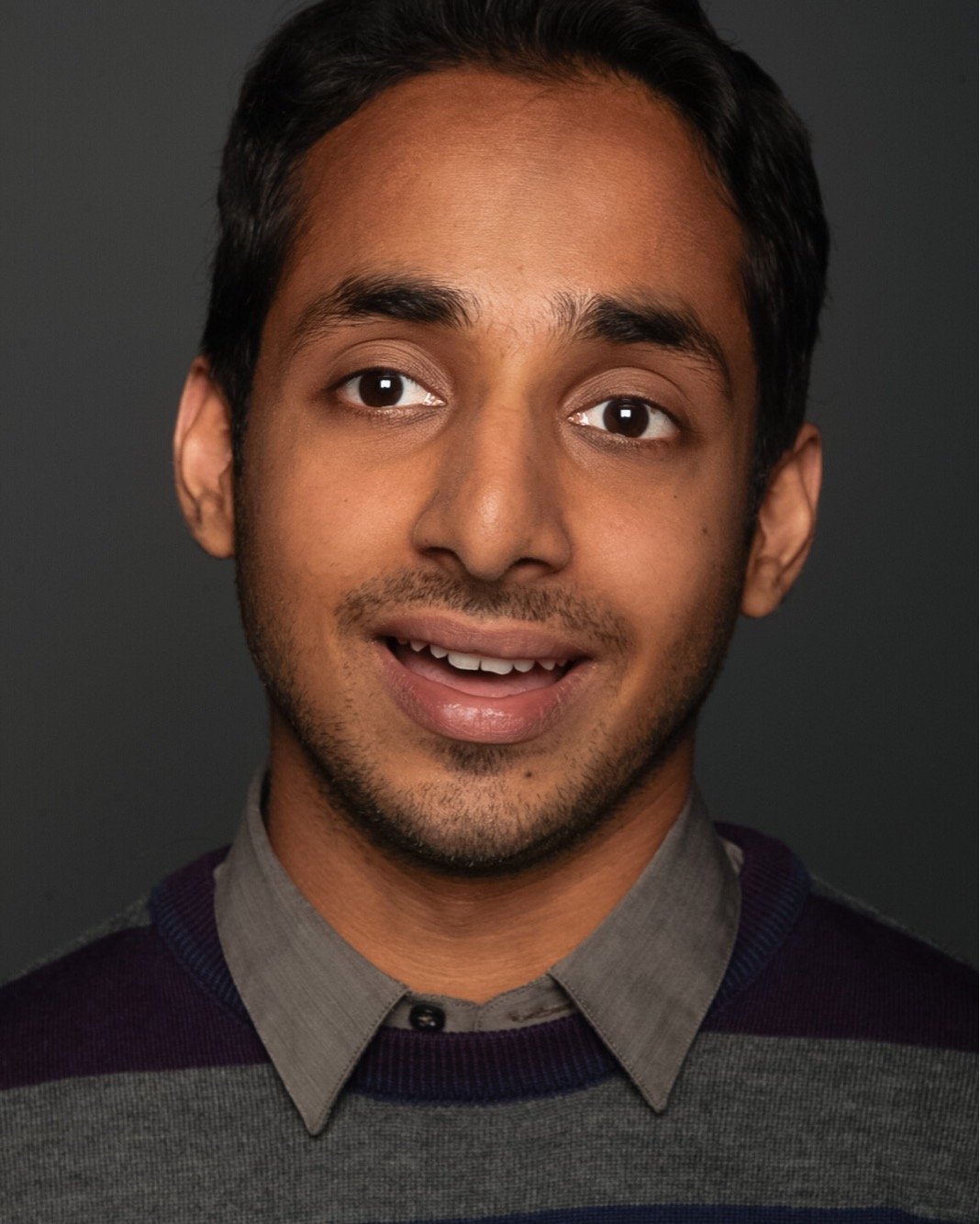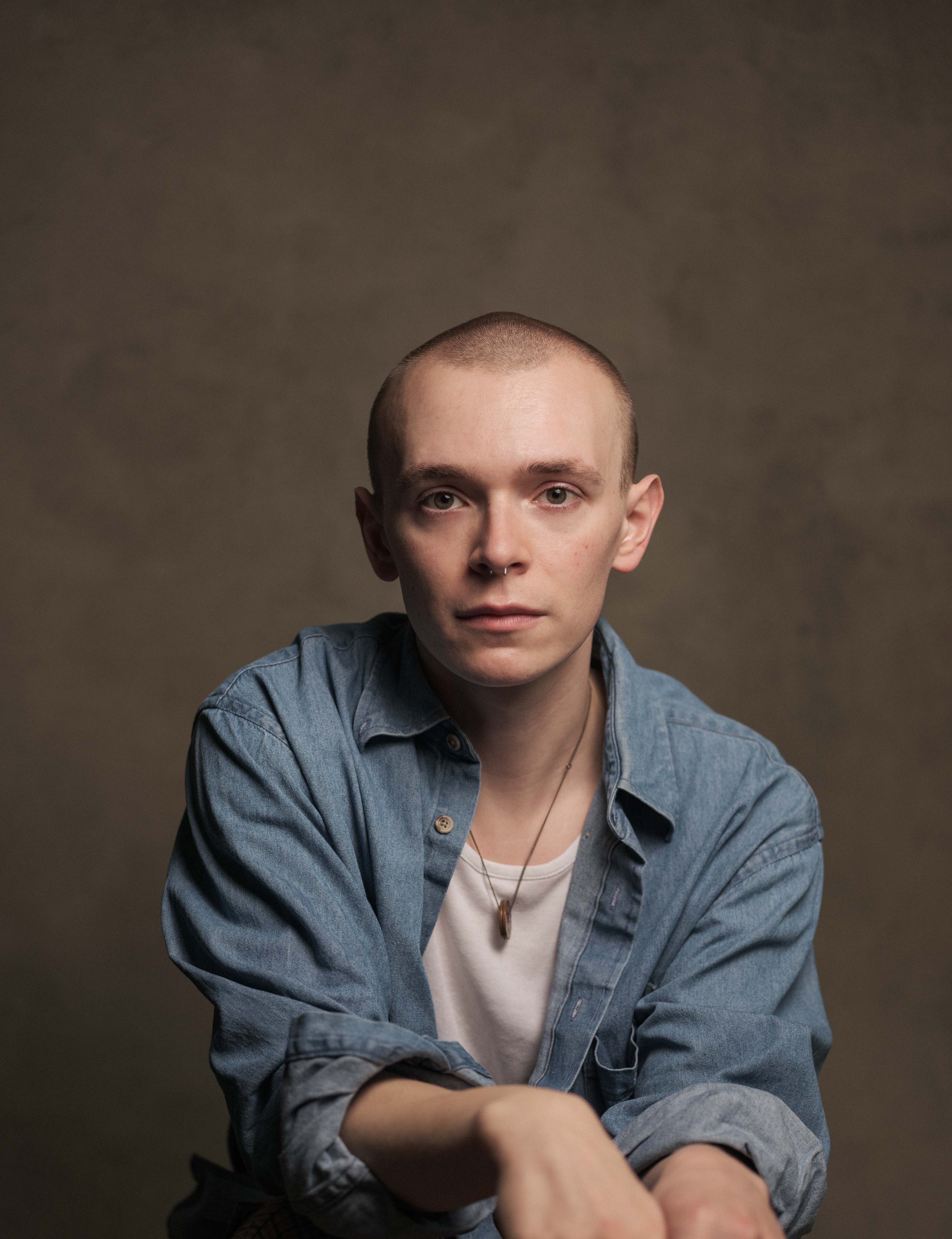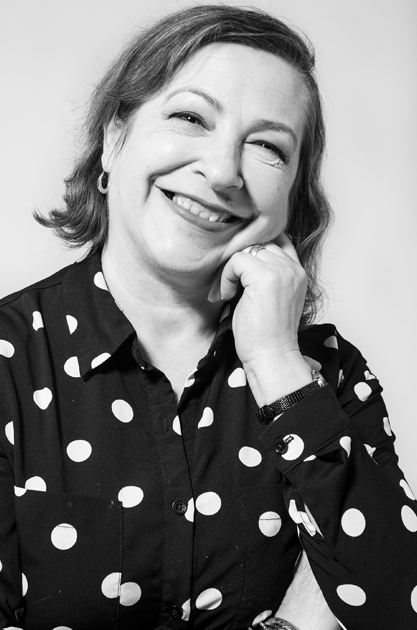Mrs C’s Collective was delighted to open applications for their second year of The Writers’ Collective. Following its 12-month pilot in 2020, this January four playwrights will embark on a 4-week guided seed commission of up to fifteen pages. Their writing will be accompanied by workshops, feedback & weekly check-ins led by the programme’s Dramaturg Somebody Jones. The team hope this will be the beginning of a further twelve months of support, following successful fundraising.
We spoke to the four playwrights about their work, their inspirations, and what they hope to achieve over the next month!
“It suggests I have something that can be cultivated and grown. It just needs to be fed and watered and directed until it blossoms and becomes its own thing.”
Introducing… Akshay Sharan, James Farley, Nilgin Yusuf and Lizzie Milton.
Tell us about your work as a creative!
Nilgin: “Writing’s one of the few things you get better at as you get older”. I took solace from these words, spoken by author and lecturer, Julia Bell at a fiction-writing workshop in Waterstones. At the time, I was 52 and in the first year of a BA in Creative Writing at Birkbeck, University of London. I’d been an experienced journalist (ex-Sunday Times, Daily Telegraph & ELLE) and spent two further decades in Higher Education but had always wondered if I could make the leap into creative writing.
“I’m passionate about this play and think I have an important story to tell.”
James: It feels a little strange to put myself forward for the Writer’s Collective as I have never actually written anything before. But I have been a professional actor for four years now working on a wide variety of projects: from stage, film, to large-scale immersive theatre with Secret Cinema.
Lizzie: I am a playwright and storyteller who makes playful and affirming shows centering queer and neurodiverse experiences. I am particularly interested in how we can represent and celebrate joy on stage, not just trauma. I am heavily influenced by folklore and mythology in my work and I am interested in how aural traditions of storytelling can inform a contemporary theatrical experience. Most recently, I wrote a short poem for SHOUT’s storywalk exploring the queer history of Birmingham. Earlier in 2021, I wrote a short story for Every Brain’s ‘Tangent’ inspired by my experiences of neurodiversity. Previously, I have written three fringe shows that have been staged at The Hope Theatre and Vault Festival, as well as a rehearsed reading at Soho Theatre. I have also written two short plays for Minack Youth Theatre and Bechdel Theatre respectively.
Akshay: I am predominantly an actor. The National Youth Theatre and drama school initiated an acting career that I am not only enjoying the return of but am also aligning with a couple of ventures into the world of writing (such as this) that started to come out of me during the lockdown. I was born in Darlington in the north of England and brought up in Dehradun in the north of India. Since moving to London in 2012 it has very much become my home. I get through books, read plays, watch films, follow a few dramatic television shows and frequent the theatre almost to an extent that some might think of as unreasonable. Personally, I never feel that way as long as I keep finding outlets in my acting and writing to channel what I am so lucky to learn and experience on almost a daily basis.
“A chance to dip my toes before potentially jumping into the deep end. It gives me the fresh start I am looking for.”
How did your writing journey begin?
James: There is a play I have been trying to write for four years now. It started off as my dissertation in my final year of drama school and I have been trying to expand it ever since. It’s deeply personal and the inspiration was a traumatic time so I want to be sure I get it absolutely right. After showing it I had multiple people come up to me and reveal how much of themselves they could see in my story and wanted to heal themselves… which was touching but also alarming given the story’s context. And I must confess, it did wonders for my ego. Since the pandemic acting work has been thin on the ground, out of frustration I decided it was finally time to start penning my own work and get this play out. I wrote a couple of scenes I was proud of and showed them to my closest friends who encouraged me to apply to get the support and guidance I needed. I was proud of myself for working up the courage to merely apply, let alone get a place.
“this play I’ve been trying to write for a few years is desperately itching to get out, which is why I applied, to push myself to get it out.”
Nilgin: Starting the course (BA in Creative Writing at Birkbeck) was the beginning of a new direction in my writing life. It was a leap of faith but I followed my gut instinct. Although I’ve been engaged by poetry and short story writing, scriptwriting has been the biggest surprise and most significant discovery of the course. I believe writing is a gift, craft, and discipline that needs to be exercised and stretched, challenged and practised. It took me a long time to describe myself as a writer. My first dramatic byline was for George, part of the Lost Souls Monologues published in 2020 and I’ve had three short scripts selected for the Scriptwriters & Co Scratch Nights. I’m now 55, will graduate in July 2022 and feel excited about the future.
Akshay: I graduated from King’s College London in the summer of 2015 with a degree in English Literature. Beyond that, I have had no previous training or ‘writer support’ experience. Writing for just over a year has been quite a solitary process. Sometimes lonely, often fulfilling, I reached a point in myself of feeling ready to venture out into something more collaborative.
Why did you apply for The Writers’ Collective?
Akshay: The structure of The Writers’ Collective is more than ideal. A chance to dip my toes before potentially jumping into the deep end.
Lizzie: I’m passionate about this play and think I have an important story to tell. I applied for The Writers’ Collective because I knew I would benefit from structured support and deadlines, and the creatives involved would be well-suited to supporting this particular play. I am hoping to learn more about my creative process throughout the year and deepen my practice, particularly focusing on structure and form. It’ll be great to work alongside other playwrights at a similar stage of their careers and learn and grow together creatively. A big part of why I applied was to become part of a creative community that can continue to work and support each other after the programme has finished.
Nilgin: The main reason I applied to the Writer’s Collective was for the opportunity to learn with experienced mentors and develop a craft. At Birkbeck, I’ve been introduced to the basics of scriptwriting for screen and stage. I’ve found the workshopping of scripts exhilarating; the opportunity to evolve characters, storylines and worlds in a mutually supportive peer group is an amazing experience. I love the idea of receiving a seed commission. It suggests I have something that can be cultivated and grown. It just needs to be fed and watered and directed until it blossoms and becomes its own thing. Although I have lots of commercial writing experience, the world of dramatic story-telling is new, exciting, but also feels a bit closed. I’m hoping that working with a collective will give me the support, signposting and guidance needed at this early stage of my development.
What are your hopes for the next month?
Nilgin Yusuf. Photo by Claire Pepper.
Akshay: I am hoping to thrive and collaborate in a structured environment that can sustain the ideas I bring to it from my own homework. I have never worked through or on the medium of writing with anyone but myself and am very much looking forward to meeting the rest of the team. The idea I have proposed will hopefully grow into my second play. The scope of it is much broader than my first (The Waiting Room) and this is precisely the regard in which I think being part of a collective will play a key role. It’s even more personal and I imagine staying in touch and collaborating with objective points of view will aid in keeping my head above water.
Lizzie: I am hoping to get structured support (and importantly, deadlines!) to help me finish the first draft of my play Intransigent Lines. Throughout this process, I want to explore different possibilities for the structure and form of the play, as well as how I can embed physicality into the text. Intransigent Lines was originally a short story, so I want to ensure that I use its theatrical potential to its best effect. I am hoping to connect with other writers and theatre-makers with who I can continue being in dialogue with after the course has finished. I want to learn from their creative processes, to get insights and enrich my own practice. I am hoping to gain a community of artists I can reach to for support or collaboration.
James: I am not a writer, and I’m not sure what the threshold is. One play? Two? Just writing for your own self-fulfilment and enjoyment? Every time I’ve tried to write this play for the past four years, the biggest challenge has been the dread of the blank page… the apprehension of failure… By the end of this month, I hope I’ll overcome this somewhat. It might be the first hurdle to jump across, but there’s always more before the finish line.
Nilgin: I want to learn and understand more about theatre and writing for the stage and hope that with this enhanced knowledge, my confidence, self-belief and voice will evolve. Theatre is an unfamiliar world to me, I’ve really only started watching plays with active interest since the beginning of my Creative Writing degree, and have probably seen more over the last three years than I have in my whole life. So, it will be fascinating to work with professional writers and dramaturgs to understand how stories translate onto the stage and what needs to be considered. I’m looking forward to meeting others writers and creatives in the field, and hope with the resulting work, I’ll be in a position to explore new opportunities as a dramatist.
Akshay Sharan
What are a few of your inspirations as a creative?
James: Sarah Kane, Mark Ravenhill and Phillip Ridley will probably always influence my writing, even if I never achieve a smidge of the daring and tenacity they brought to the British theatre scene. A lot of young people studying drama at college will come across their work and it will change their lives, I was no different.
Every play I have seen by Branden Jacobs-Jenkins has made me feel exactly how I want to feel when I see a play: uncomfortable, self-reflective and highly entertained.
White Noise by Suzan-Lori Parks is one of the bravest new plays I’ve seen in ages. A horror played as a comedy played as a horror. It was confrontational, deeply unsettling and uncomfortably funny. I can only hope to achieve what she did.
Lizzie: Dennis Kelly, Tim Crouch, Chris Brett Bailey, Boots Riley.
Nilgin: I’m endlessly fascinated by people and believe everyone has an interesting story to tell. I’m particularly drawn to characters who don’t quite fit in or are doing something unusual or off-kilter. I guess transgression in all forms sums it up – and it might be minor or major. Listening to how people speak can be inspiring; I’ve discovered I love writing dialogue. It finds its way into all forms of my writing. I have a fondness for true crime, domestic drama and stories about family relationships/dynamics. I like the contrast between the domestic and the macabre; I like the dark and witty. I’m also fascinated by London and the history of the city, news, visual culture, strong female characters, the bond between humans and animals. Samuel Beckett. Caryl Churchill. Arthur Miller. David Mamet, Sarah Kane, Peter Shaffer, Lucy Kirkwood, Lillian Hellman are inspirational playwrights.
Akshay: Shakespeare and Chekhov are my favourite playwrights. Robert Icke’s adaptations of classics such as Oresteia, Uncle Vanya, Hamlet, The Wild Duck and 1984 are among some of my favourite contemporary productions. I am also fond of Simon Stone’s adaptations of Medea and Yerma and plays by Irish playwright’s such as Samuel Beckett (particularly Waiting for Godot), Brian Friel (Faith Healer) and Enda Walsh (Ballyturk and Misterman). I love dynastic dramas of Shakespearean proportion such as Succession, The Sopranos and Game of Thrones.







